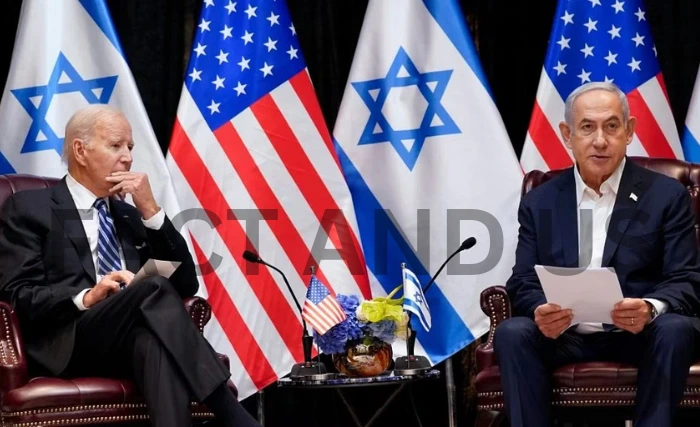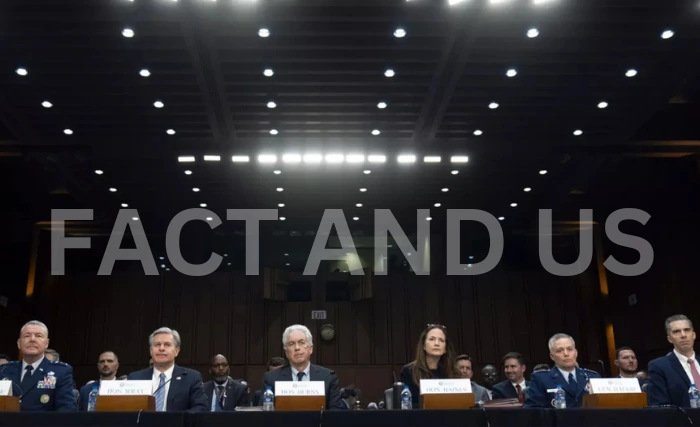The US is investigating a leak of classified documents describing an American assessment of Israel’s plans to attack Iran, House of Representatives Speaker Mike Johnson has confirmed. The documents were reportedly published online last week and are said to describe satellite imagery showing Israel moving military assets in preparation for a response to Iran’s missile attack on 1 October.

Contents
US Investigates Leak of Israel
The documents, marked top secret, were shareable within the Five Eyes intelligence alliance of the US, Britain, Canada, New Zealand and Australia, CBS, the BBC’s US partner, reported. For weeks Israel has been deciding how and when to respond to Iran’s latest missile attack. Israel’s defence minister has warned it will be “deadly, precise and surprising”. The two documents reportedly appear to be attributed to the US National Geospatial Intelligence Agency and National Security Agency (NSA), and were published on an Iranian-aligned Telegram account on Friday.
Johnson, the highest-ranking member of Congress, told CNN on Sunday that “the leak is very concerning”. “There’s some serious allegations being made, there’s an investigation under way, and I’ll get a briefing on that in a couple of hours,” the Louisiana Republican lawmaker said. The Pentagon confirmed in a statement that it was aware of reports about the documents, but did not comment further.


The US agencies involved, as well as the Israeli government, have not publicly commented on the leak.
CNN and Axios first reported the leak, which confirms once again that the US spies on its close ally Israel. One document makes a reference to Israel’s nuclear capabilities – which neither the US nor Israel ever officially acknowledge – apparently ruling out the use of such an option in any planned strike.
One former American intelligence official told the unauthorised release was probably an attempt to expose the scale of the planned retaliation, possibly to disrupt tithe US is investigating whether the information was intentionally leaked by a US agent, or whether it was stolen, possibly through hacking, officials told the Associated Press (AP).
The two documents appear to be based on satellite information obtained from 15-16 October. The first is titled: “Israel: Air Force Continues Preparations for Strike on Iran and Conducts a Second Large-Force Employment Exercise,” according to Reuters news agency. It describes ballistic and air-to-surface missile handling.
The second is titled: “Israel: Defense Forces Continue Key Munitions Preparations and Covert UAV Activity Almost Certainly for a Strike on Iran”. It discusses Israeli drone movements.
On Friday, US President Joe Biden said he had a “good understanding” of what Israel was planning.

The Leak
According to sources, details of Israel’s strategy to target Iran’s nuclear infrastructure were shared on social media, sparking international alarm. The U.S. intelligence community is now working to trace the origins of the leak, with particular focus on how such sensitive details, usually held within a tight circle of security officials, were made public. This leak comes at a critical juncture as tensions over Iran’s nuclear program continue to grow.
The leaked information reportedly outlines Israel’s intent to strike several key nuclear sites in Iran, with the goal of delaying or dismantling Tehran’s nuclear ambitions. The plan appears to have been in development for some time and is consistent with Israel’s longstanding opposition to a nuclear-armed Iran, which it views as an existential threat.
International Implications
The timing of the leak is particularly delicate, as diplomatic efforts to revive the Iran nuclear deal (officially known as the Joint Comprehensive Plan of Action, or JCPOA) have stalled. With the Biden administration attempting to prevent a nuclear escalation, the exposure of Israel’s potential military action could strain U.S.-Israeli relations, as well as complicate ongoing diplomatic efforts in the region.

U.S. officials have not confirmed the accuracy of the leaked documents but have expressed concern about the breach. “We take the unauthorized disclosure of classified information very seriously and are conducting a thorough investigation into the matter,” said a U.S. State Department spokesperson.
Israeli Response
Israel has neither confirmed nor denied the authenticity of the leak. However, Israeli defense officials have previously hinted at unilateral military action if international diplomacy fails to curb Iran’s nuclear development. Prime Minister Benjamin Netanyahu has repeatedly stated that Israel will do whatever is necessary to protect itself from the threat posed by a nuclear-armed Iran.
“We will not stand by and allow Iran to threaten our very existence,” Netanyahu said in a recent statement, without directly addressing the leaked plans.
The Iranian Angle
Iran, which has always maintained that its nuclear program is for peaceful purposes, has yet to officially respond to the leak. However, the revelation of a potential Israeli strike could inflame an already tense situation. In recent months, Iran has increased its uranium enrichment, further defying international agreements, while accusing Israel of engaging in covert operations against its nuclear scientists and facilities.
U.S. Investigation Underway

The U.S. government is now facing multiple challenges: managing fallout from the leak, maintaining its strategic alliance with Israel, and continuing efforts to curb Iran’s nuclear ambitions without provoking a broader conflict. The investigation, led by the FBI and intelligence agencies, is still in its early stages, and it remains unclear whether the leak originated domestically or from an international source.
For now, U.S. officials are focusing on damage control and ensuring that the leak does not undermine broader regional security. However, as tensions rise between Israel and Iran, the consequences of this leak could reverberate for weeks to come.
A Fragile Balance
With the Middle East already in a fragile state, any military action by Israel against Iran could have far-reaching consequences. The U.S. finds itself walking a tightrope, trying to balance its support for Israel’s security with efforts to de-escalate tensions in the region and prevent an all-out war.
The world will be watching closely as this situation develops, with hopes pinned on diplomacy but fears growing that military conflict may be inevitable if solutions aren’t found soon.
stay connected with fact and us for more such news.
